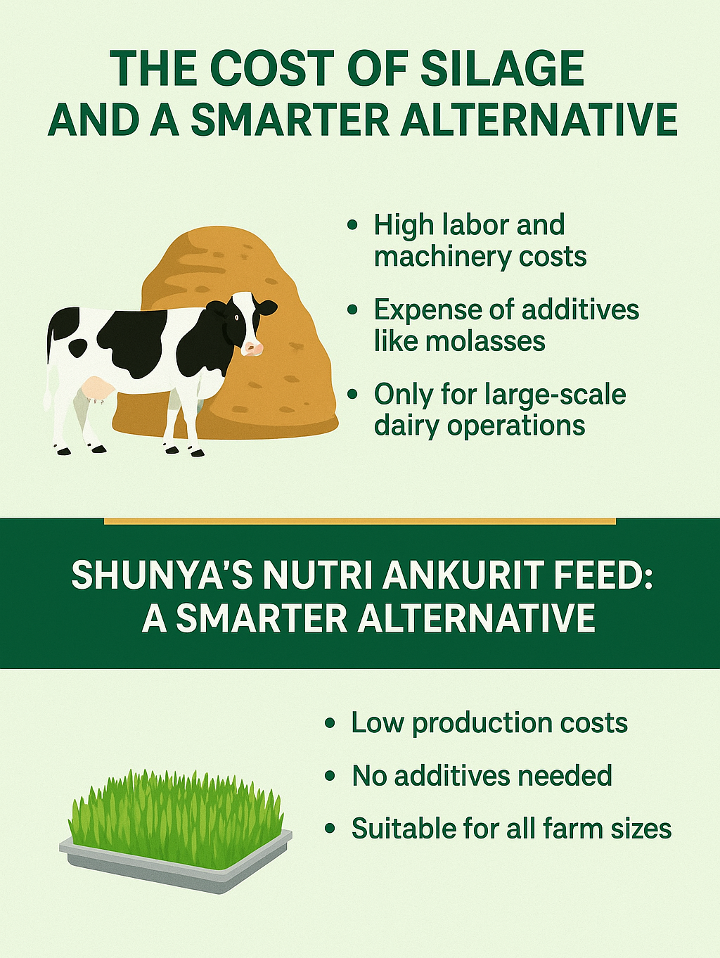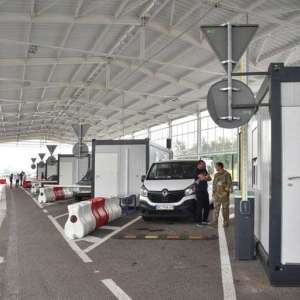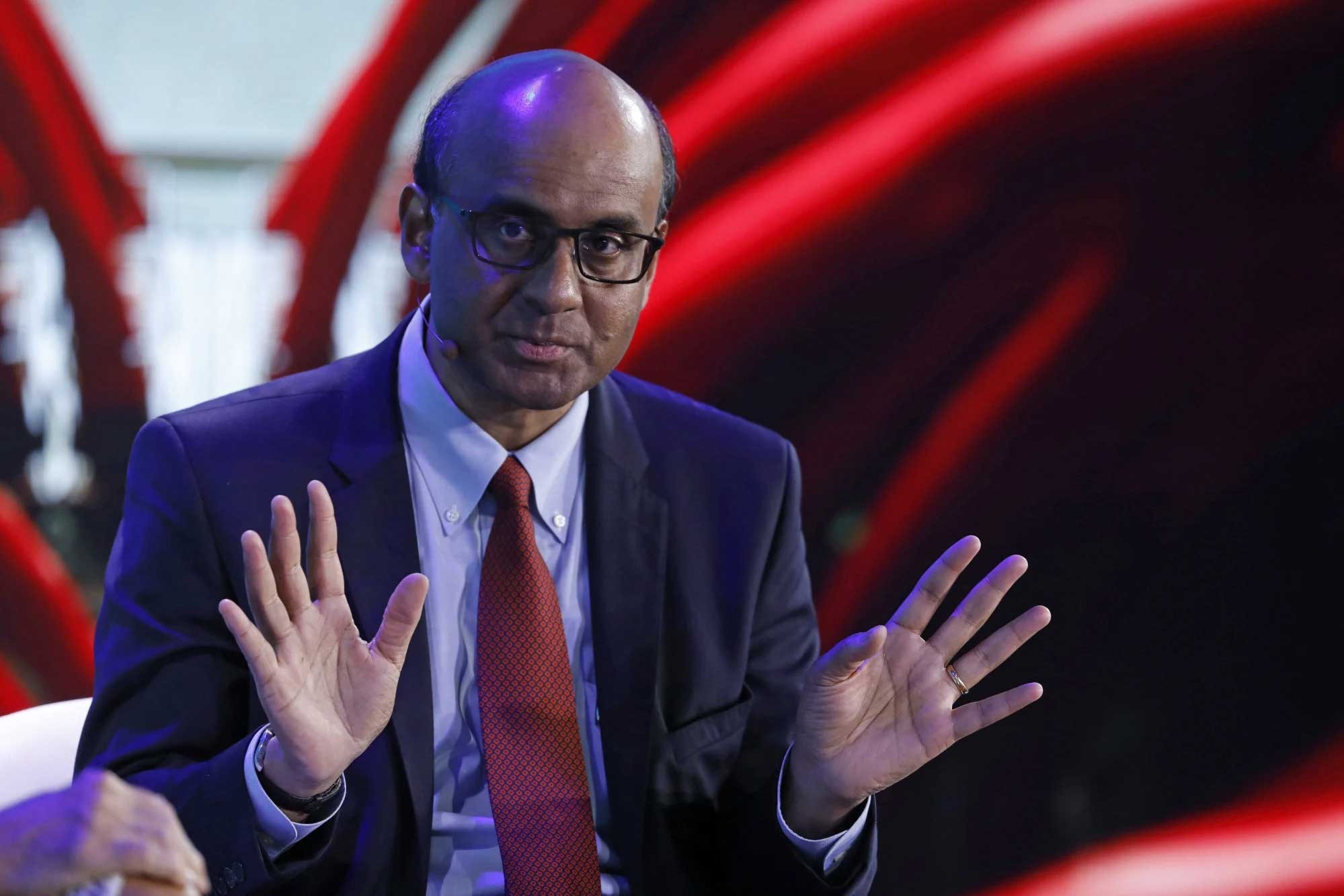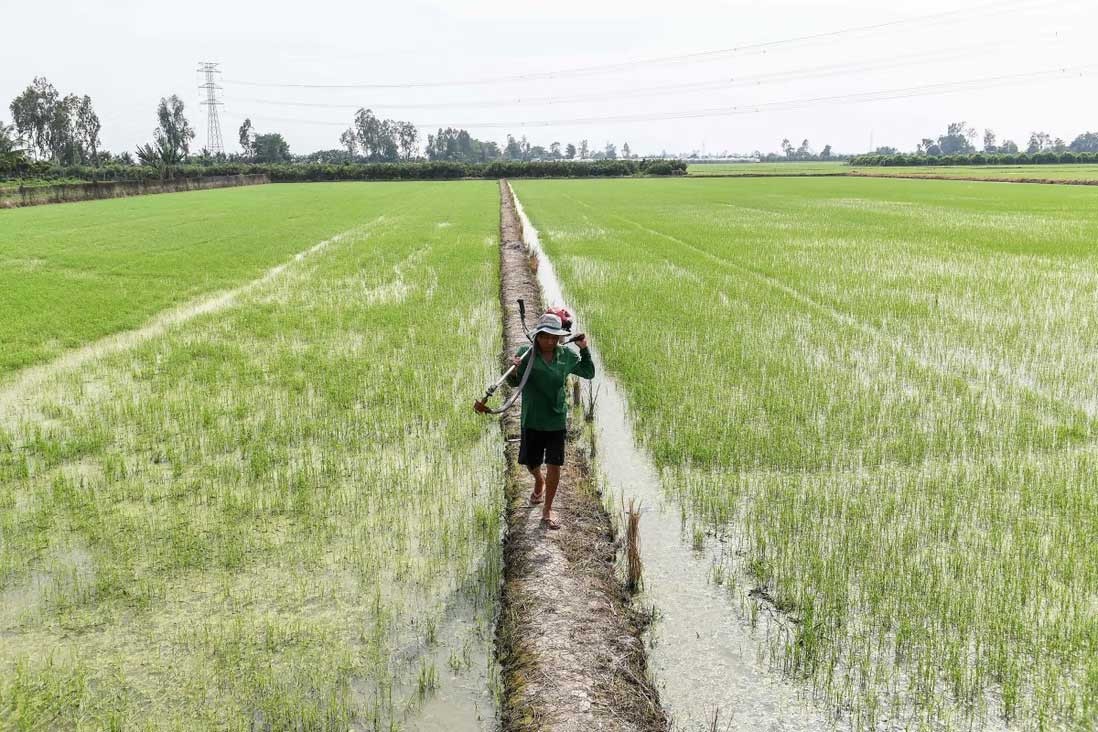9 months ago
Affordable Hydroponic Fodder: A Game Changer for Small Farmers
#Affordable #hydroponic #fodder #for #small #farmers isn’t just a buzzword—it’s a powerful tool empowering smallholders. By lowering input costs, ******* uring reliable feed, and improving animal well-being, it strengthens livelihoods and builds resilience. And for farmers exploring this path, Shunya offers tailored hydroponic-as-a-service solutions, combining local growth centers, on‑demand delivery, and expert support to make sustainable fodder accessible to all. Read this full blog to know more.
Read here: https://betashunya.blogspo...
#Affordable #hydroponic #fodder #for #small #farmers isn’t just a buzzword—it’s a powerful tool empowering smallholders. By lowering input costs, ******* uring reliable feed, and improving animal well-being, it strengthens livelihoods and builds resilience. And for farmers exploring this path, Shunya offers tailored hydroponic-as-a-service solutions, combining local growth centers, on‑demand delivery, and expert support to make sustainable fodder accessible to all. Read this full blog to know more.
Read here: https://betashunya.blogspo...
9 months ago
Holy Cow: There’s nothing like a Free (Silage) lunch
Silage is often seen as a safety net for farmers — a way to store feed in bulk and ensure green fodder access during dry months. Many farmers invest in hybrid maize, harvest it at the right stage, chop and ferment it, and then stack it in pits or wrap it in polythene to make silage.
Read More Visit us : https://www.shunya.live/ho...
Silage is often seen as a safety net for farmers — a way to store feed in bulk and ensure green fodder access during dry months. Many farmers invest in hybrid maize, harvest it at the right stage, chop and ferment it, and then stack it in pits or wrap it in polythene to make silage.
Read More Visit us : https://www.shunya.live/ho...

Holy Cow: There’s nothing like a Free (Silage) lunch
Read more to know about the hidden cost of silage making and how farmers can benefit from making a smart switch.
https://www.shunya.live/holy-cow-theres-nothing-like-a-free-silage-lunch/
3 yr. ago
Reuters
Poland, Hungary ban grain and food imports from Ukraine; Kyiv unhappy
Story by Reuters • 6h ago - 16-4-2023
WARSAW/BUDAPEST (Reuters) -Poland and Hungary have decided to ban imports of grain and other food from neighbouring Ukraine to protect the local agricultural sector, the two governments said on Saturday, after a flood of supply depressed prices across the region.
Ukraine expressed regret about the Polish decision, saying that "resolving various issues by unilateral drastic actions will not accelerate a positive resolution of the situation".
After Russia's invasion blocked some Black Sea ports, large quantities of Ukrainian grain, which is cheaper than that produced in the European Union, ended up staying in Central European states due to logistical bottlenecks, hitting prices and sales for local farmers.
In a letter to the European Commission last month, the prime ministers of five eastern European countries said the scale of the increase in products like grains, oilseeds, eggs, poultry and sugar had been "unprecedented", and said tariffs on Ukrainian agricultural imports should potentially be considered.
The impact of the oversupply has created a political problem for Poland's ruling Law and Justice Party (PiS) in an election year, with the economy mired in stagflation.
"Today, the government has decided on a regulation that prohibits the entry, importation of grain into Poland, but also dozens of other types of food (from Ukraine)," PiS leader Jaroslaw Kaczynski said during a party convention.
The list of these goods, which will range "from grain to honey products, very, very many things", will be included in the government regulation, he added.
Ukraine's ministry of agrarian policy and food said the Polish ban contradicted existing bilateral agreements on exports, and called for talks to settle the issue.
"We understand that Polish farmers are in a difficult situation, but we emphasize that Ukrainian farmers are in the most difficult situation right now," it said in a statement.
Later on Saturday nationalist Hungarian Prime Minister Viktor Orban's government joined the ban, saying the status quo would cause severe damage to local farmers.
Hungary did not give details on when its ban on grain and other food imports would go into effect, but said it will expire at the end of June.
Poland's Kaczynski said: "We are and remain unchanged friends and allies of Ukraine. We will support her and we support her. ... But it is the duty of every state, every authority, good authority in any case, to protect the interests of its citizens."
Kaczynski said Poland was ready to start talks with Ukraine to settle the grain issue.
Hungary's government said it hoped for changes in regulation at the EU level, including a re-thinking of the elimination of import duties on Ukrainian produce.
(Reporting by Pawel Florkiewicz, David Ljunggren, Nick Starkov and Gergely Szakacs; Editing by Mark Potter and Jan Harvey)
Poland, Hungary ban grain and food imports from Ukraine; Kyiv unhappy
Story by Reuters • 6h ago - 16-4-2023
WARSAW/BUDAPEST (Reuters) -Poland and Hungary have decided to ban imports of grain and other food from neighbouring Ukraine to protect the local agricultural sector, the two governments said on Saturday, after a flood of supply depressed prices across the region.
Ukraine expressed regret about the Polish decision, saying that "resolving various issues by unilateral drastic actions will not accelerate a positive resolution of the situation".
After Russia's invasion blocked some Black Sea ports, large quantities of Ukrainian grain, which is cheaper than that produced in the European Union, ended up staying in Central European states due to logistical bottlenecks, hitting prices and sales for local farmers.
In a letter to the European Commission last month, the prime ministers of five eastern European countries said the scale of the increase in products like grains, oilseeds, eggs, poultry and sugar had been "unprecedented", and said tariffs on Ukrainian agricultural imports should potentially be considered.
The impact of the oversupply has created a political problem for Poland's ruling Law and Justice Party (PiS) in an election year, with the economy mired in stagflation.
"Today, the government has decided on a regulation that prohibits the entry, importation of grain into Poland, but also dozens of other types of food (from Ukraine)," PiS leader Jaroslaw Kaczynski said during a party convention.
The list of these goods, which will range "from grain to honey products, very, very many things", will be included in the government regulation, he added.
Ukraine's ministry of agrarian policy and food said the Polish ban contradicted existing bilateral agreements on exports, and called for talks to settle the issue.
"We understand that Polish farmers are in a difficult situation, but we emphasize that Ukrainian farmers are in the most difficult situation right now," it said in a statement.
Later on Saturday nationalist Hungarian Prime Minister Viktor Orban's government joined the ban, saying the status quo would cause severe damage to local farmers.
Hungary did not give details on when its ban on grain and other food imports would go into effect, but said it will expire at the end of June.
Poland's Kaczynski said: "We are and remain unchanged friends and allies of Ukraine. We will support her and we support her. ... But it is the duty of every state, every authority, good authority in any case, to protect the interests of its citizens."
Kaczynski said Poland was ready to start talks with Ukraine to settle the grain issue.
Hungary's government said it hoped for changes in regulation at the EU level, including a re-thinking of the elimination of import duties on Ukrainian produce.
(Reporting by Pawel Florkiewicz, David Ljunggren, Nick Starkov and Gergely Szakacs; Editing by Mark Potter and Jan Harvey)
3 yr. ago
Daily Mail
'Time-traveler' claims the alien invasion he predicted is complete
Story by Elmira Tanatarova For Mailonline • Yesterday 10:39 pm - 24-3-2023
A'time-traveler' who warned of an alien abducting 8,000 people on March 23 has claimed that the extra terrestrial has come and gone from Earth, making its departure around 7.30pm EST.
The captured humans will allegedly protect us from the next alien invasion, which the space-aficionado claims is scheduled for 'mid 2024'.
TikToker Eno Alaric - who goes by theradiantimetraveller and claims to be from the year 2671 - stressed that yesterday would mark a tumultuous day in which 'The Champion' would bring its hostages to a habitable planet.
And in their most recent clip, the creator, who is understood to be based in the US, announced that the species had indeed made its arrival at 2pm and 'was looking for the best engineers, scientists, doctors and leaders'.
'The 8,000 have a long journey ahead of them,' Eno added. 'About four years, since The Champion can travel faster than light.'
A previous break-down of the abducted suggested it will include around 200 doctors, 1000 farmers, 1000 engineers and mechanics 'and many more'.
The video went on to claim that the hostages are 'what keep the human species alive, from inside and outside threats'.
However, it would seem it's not all good news.
'Mankind is a threat to itself in many ways,' Eno continued. 'Such as fighting, and causing the first nuclear winter.'
They also warned that yet another alien species - The Distants - is now on its way to Earth and will arrive sometime next year.
The TikToker explained that they 'own' Earth, and that the Pyramid of Giza is their 'mark of ownership and control'.
In a previous video, The Distants were branded 'very hostile' and on a mission to take back the planet that's originally theirs.
Apparently, humans became 'more advances than the aliens thought', as Eno claims we will soon be facing them in our firs space battle.
'I want you all to know that you are safe,' they reassured. 'I am trying to warn you all of what's to come.'
In another clip, the 'time-traveler' also predicted that this month would see 'The Lost City of Atlantis' threaten everyone with a 'man made flood, that can cover the entire world'.
Eno also alleges that on April 9, a very famous celebrity will reveal that they faked their death, and on June 12 - a earthquake will open a five-mile deep trench which will unveil species previously thought to be extinct.
The account posts more than 397,100 followers, with their videos raking up some 1.6 million likes.
The creator has previously made videos about twin planets with Earth, portals opening up to other dimensions, and alien visitors.
The captured humans will allegedly protect us from the next alien invasion, which the space-aficionado claims is scheduled for 'mid 2024'. Stock image used
© Provided by Daily Mail
'Time-traveler' claims the alien invasion he predicted is complete
Story by Elmira Tanatarova For Mailonline • Yesterday 10:39 pm - 24-3-2023
A'time-traveler' who warned of an alien abducting 8,000 people on March 23 has claimed that the extra terrestrial has come and gone from Earth, making its departure around 7.30pm EST.
The captured humans will allegedly protect us from the next alien invasion, which the space-aficionado claims is scheduled for 'mid 2024'.
TikToker Eno Alaric - who goes by theradiantimetraveller and claims to be from the year 2671 - stressed that yesterday would mark a tumultuous day in which 'The Champion' would bring its hostages to a habitable planet.
And in their most recent clip, the creator, who is understood to be based in the US, announced that the species had indeed made its arrival at 2pm and 'was looking for the best engineers, scientists, doctors and leaders'.
'The 8,000 have a long journey ahead of them,' Eno added. 'About four years, since The Champion can travel faster than light.'
A previous break-down of the abducted suggested it will include around 200 doctors, 1000 farmers, 1000 engineers and mechanics 'and many more'.
The video went on to claim that the hostages are 'what keep the human species alive, from inside and outside threats'.
However, it would seem it's not all good news.
'Mankind is a threat to itself in many ways,' Eno continued. 'Such as fighting, and causing the first nuclear winter.'
They also warned that yet another alien species - The Distants - is now on its way to Earth and will arrive sometime next year.
The TikToker explained that they 'own' Earth, and that the Pyramid of Giza is their 'mark of ownership and control'.
In a previous video, The Distants were branded 'very hostile' and on a mission to take back the planet that's originally theirs.
Apparently, humans became 'more advances than the aliens thought', as Eno claims we will soon be facing them in our firs space battle.
'I want you all to know that you are safe,' they reassured. 'I am trying to warn you all of what's to come.'
In another clip, the 'time-traveler' also predicted that this month would see 'The Lost City of Atlantis' threaten everyone with a 'man made flood, that can cover the entire world'.
Eno also alleges that on April 9, a very famous celebrity will reveal that they faked their death, and on June 12 - a earthquake will open a five-mile deep trench which will unveil species previously thought to be extinct.
The account posts more than 397,100 followers, with their videos raking up some 1.6 million likes.
The creator has previously made videos about twin planets with Earth, portals opening up to other dimensions, and alien visitors.
The captured humans will allegedly protect us from the next alien invasion, which the space-aficionado claims is scheduled for 'mid 2024'. Stock image used
© Provided by Daily Mail
3 yr. ago
From India to China, Asia’s ‘rice bowl’ is under threat due to groundwater woes
Major rice producers need to shift to producing rice that is resilient to flooding and salinity, to cope with likely increase in frequency, intensity of floods and droughts
Each degree of global warming adds about 7 per cent moisture to the water cycle, leading to more extreme weather events, analysts have warned
Biman Mukherji - Published: 4:00pm, 18 Mar, 2023
Besides switching to more resilient farming practices, scientists are also advocating changing diets to prevent over-exploitation of land.
“We have to diversify our food basket to include millets and reduce our dependence on rice and wheat,” said Biraj Patnaik, a South Asia foods right activist and former adviser to India’s Supreme Court.
“We [India] produce only about 20 million metric tons of millet, which is a small fraction of our grains consumption. For India’s neighbours like Bangladesh and Pakistan, the consumption of millets is even lower.”
Agriculture scientists say that millet farming not only reduces water stress, it is also healthy as the grain is protein-rich and helps address malnutrition.
Globally, about US$700 billion in subsidies are fuelling excessive water consumption and other environmentally dangerous practices and these must be used to incentivise water conservation and access, according to the Global Commission for the Economics of Water.
Each degree of global warming added about 7 per cent moisture to the water cycle, leading to more extreme weather events, said Johan Rockström, director of the Potsdam Institute for Climate Impact Research and co-chair of the Commission.
“We are changing the entire global hydrological cycle,” he said.
Last year’s floods in Pakistan, which submerged a third of the country and devastated agriculture and livestock, has pushed the South Asian nation to the brink of a debt crisis as foreign exchange reserves have plummeted.
Seasonal floods in Malaysia during the annual monsoon season have killed at least four people and displaced more than 40,000 from their homes, leaving a trail of destruction and driving up prices of commodities.
On the other hand, rice farmers on the Indian subcontinent are bracing themselves for rainfall deficiency during the summer monsoon season. An unusually warm spring for the second year in a row has highlighted the kind of weather extremes that the region is facing.
Climate experts say Asia is more vulnerable than other continents due to its high population density and lower coping mechanisms available to most of the population.
Despite this, massive floods in Germany in 2021 show that even developed countries are often ill-prepared in tackling climate change.
Without action to transform the economics and governance of water, the world will fail on climate action and on the UN’s sustainable development goals, the Global Commission for the Economics of Water has warned.
The group said the world had failed to recognise that rivers, groundwater and atmospheric flows of water vapour cross international boundaries, and therefore such resources must be treated as a global common good.
Singapore’s Tharman Shanmugaratnam has called for farmers to be given incentives to adopt practices such as smart irrigation. Photo: Bloomberg
Major rice producers need to shift to producing rice that is resilient to flooding and salinity, to cope with likely increase in frequency, intensity of floods and droughts
Each degree of global warming adds about 7 per cent moisture to the water cycle, leading to more extreme weather events, analysts have warned
Biman Mukherji - Published: 4:00pm, 18 Mar, 2023
Besides switching to more resilient farming practices, scientists are also advocating changing diets to prevent over-exploitation of land.
“We have to diversify our food basket to include millets and reduce our dependence on rice and wheat,” said Biraj Patnaik, a South Asia foods right activist and former adviser to India’s Supreme Court.
“We [India] produce only about 20 million metric tons of millet, which is a small fraction of our grains consumption. For India’s neighbours like Bangladesh and Pakistan, the consumption of millets is even lower.”
Agriculture scientists say that millet farming not only reduces water stress, it is also healthy as the grain is protein-rich and helps address malnutrition.
Globally, about US$700 billion in subsidies are fuelling excessive water consumption and other environmentally dangerous practices and these must be used to incentivise water conservation and access, according to the Global Commission for the Economics of Water.
Each degree of global warming added about 7 per cent moisture to the water cycle, leading to more extreme weather events, said Johan Rockström, director of the Potsdam Institute for Climate Impact Research and co-chair of the Commission.
“We are changing the entire global hydrological cycle,” he said.
Last year’s floods in Pakistan, which submerged a third of the country and devastated agriculture and livestock, has pushed the South Asian nation to the brink of a debt crisis as foreign exchange reserves have plummeted.
Seasonal floods in Malaysia during the annual monsoon season have killed at least four people and displaced more than 40,000 from their homes, leaving a trail of destruction and driving up prices of commodities.
On the other hand, rice farmers on the Indian subcontinent are bracing themselves for rainfall deficiency during the summer monsoon season. An unusually warm spring for the second year in a row has highlighted the kind of weather extremes that the region is facing.
Climate experts say Asia is more vulnerable than other continents due to its high population density and lower coping mechanisms available to most of the population.
Despite this, massive floods in Germany in 2021 show that even developed countries are often ill-prepared in tackling climate change.
Without action to transform the economics and governance of water, the world will fail on climate action and on the UN’s sustainable development goals, the Global Commission for the Economics of Water has warned.
The group said the world had failed to recognise that rivers, groundwater and atmospheric flows of water vapour cross international boundaries, and therefore such resources must be treated as a global common good.
Singapore’s Tharman Shanmugaratnam has called for farmers to be given incentives to adopt practices such as smart irrigation. Photo: Bloomberg
3 yr. ago
From India to China, Asia’s ‘rice bowl’ is under threat due to groundwater woes
Major rice producers need to shift to producing rice that is resilient to flooding and salinity, to cope with likely increase in frequency, intensity of floods and droughts
Each degree of global warming adds about 7 per cent moisture to the water cycle, leading to more extreme weather events, analysts have warned
Biman Mukherji - Published: 4:00pm, 18 Mar, 2023
The world’s rice bowl could be in danger if more resilient farming practices are not adopted, experts have warned, as overexploitation of groundwater coupled with climate change has put age-old cultivation methods across Asia at risk.
Climate experts say the stress will be different across parts of the region even as floods and droughts are expected with greater frequency and intensity. That means bad news for India, Thailand and Vietnam – the top three rice exporters – and the rest of the world.
Mega deltas like Vietnam, Bangladesh and Myanmar – which are major rice producers – will face more saline water intrusion and flooding and hence will need to shift to producing rice that is resilient to flooding and salinity. More flooding is also expected on the Indo-Gangetic plains due to the increase in the glacier melting of the Himalayas.
“This isn’t the end of rice farming in Asia, but centuries-old cultivation practices have reached their limits,” said Tharman Shanmugaratnam, co-chair of the Global Commission on the Economics of Water, and Singapore’s senior minister and coordinating minister for social policies.
“Whole regions have been over-extracting groundwater, while others face growing saltwater intrusions,” he told This Week in Asia. “The good news is that solutions exist.”
Farmers in northern India use subsidised electricity to pump out water from ground for rice cultivation, which has caused water tables to plunge over years.
Tharman said farmers must be given incentives to adopt practices such as smart irrigation – which minimises water usage by scientifically measuring it – and producing flood-and drought-tolerant rice.
Growing less water-intensive crops could be another option, he added. “And from Shandong to Goa, scientists are doing promising experiments with salt-tolerant rice.”
Technical modelling shows that countries such as China and members of the Association of Southeast Asian Nations (Asean) will probably switch from being net food exporters to net food importers in 2050 due to water scarcity
A farmer walks along an embankment in a rice field in Can Tho in southern Vietnam in February 2023. Photo: AFP
Major rice producers need to shift to producing rice that is resilient to flooding and salinity, to cope with likely increase in frequency, intensity of floods and droughts
Each degree of global warming adds about 7 per cent moisture to the water cycle, leading to more extreme weather events, analysts have warned
Biman Mukherji - Published: 4:00pm, 18 Mar, 2023
The world’s rice bowl could be in danger if more resilient farming practices are not adopted, experts have warned, as overexploitation of groundwater coupled with climate change has put age-old cultivation methods across Asia at risk.
Climate experts say the stress will be different across parts of the region even as floods and droughts are expected with greater frequency and intensity. That means bad news for India, Thailand and Vietnam – the top three rice exporters – and the rest of the world.
Mega deltas like Vietnam, Bangladesh and Myanmar – which are major rice producers – will face more saline water intrusion and flooding and hence will need to shift to producing rice that is resilient to flooding and salinity. More flooding is also expected on the Indo-Gangetic plains due to the increase in the glacier melting of the Himalayas.
“This isn’t the end of rice farming in Asia, but centuries-old cultivation practices have reached their limits,” said Tharman Shanmugaratnam, co-chair of the Global Commission on the Economics of Water, and Singapore’s senior minister and coordinating minister for social policies.
“Whole regions have been over-extracting groundwater, while others face growing saltwater intrusions,” he told This Week in Asia. “The good news is that solutions exist.”
Farmers in northern India use subsidised electricity to pump out water from ground for rice cultivation, which has caused water tables to plunge over years.
Tharman said farmers must be given incentives to adopt practices such as smart irrigation – which minimises water usage by scientifically measuring it – and producing flood-and drought-tolerant rice.
Growing less water-intensive crops could be another option, he added. “And from Shandong to Goa, scientists are doing promising experiments with salt-tolerant rice.”
Technical modelling shows that countries such as China and members of the Association of Southeast Asian Nations (Asean) will probably switch from being net food exporters to net food importers in 2050 due to water scarcity
A farmer walks along an embankment in a rice field in Can Tho in southern Vietnam in February 2023. Photo: AFP






